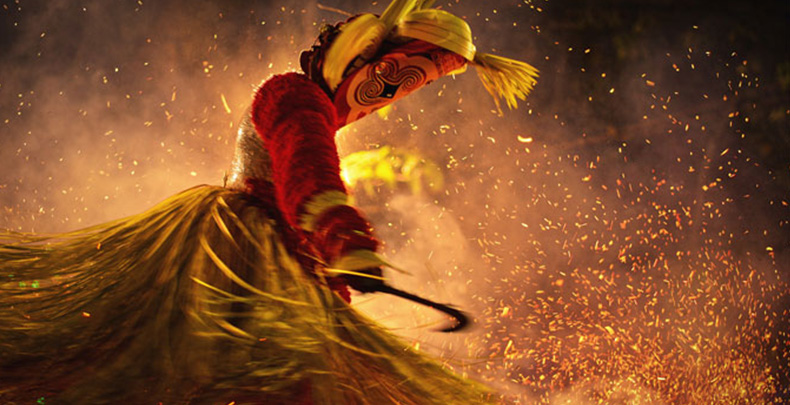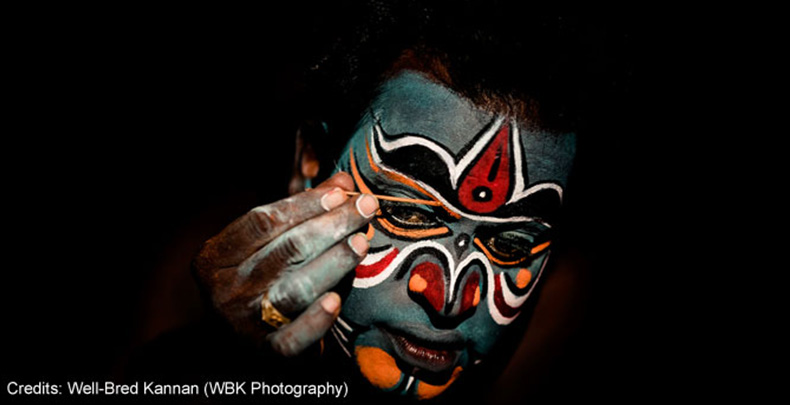
The word folklore originates from two words, ‘Folk’ meaning the general public of a community or society and ‘Lore’ meaning art, belief or custom inherited by knowledge or experience over the time period of several years or centuries. It includes those knowledge or traditions, which are passed on orally from one generation to another and survives perpetually. It speaks on various arenas, mainly in relation to the working of the society or in praise of nature, hence popularly known as Traditional Cultural Expressions (TCEs). Folklore or TCEs provide an insight into the customs and traditions of a society. It reflects the cultures and its social background consisting of the essentials of the community’s heritage. The ownership of such TCEs is often in question, to answer this, numerous social and anthropological research has stated that the community or folks involved in nurturing and preservation of such TCEs are the actual custodians or the rightful holders of such Expressions. The creators or authors are believed to be those unknown or unidentified or by the community at large, thereby the credit of such original creations should go to the communities who have been preserving it and developing it for ages and has become an inherent part of their customs and traditions. Tradition and culture play an important role in matters of upholding the identity of a certain territory, the uniqueness and the cultural or traditional differences add to the element of rendering a separate identity to that territory or the group of people. Hence TCEs or folklores are very significant.
The realm of intellectual property states that a work must be creative, artistic and innovative in nature. TCEs must also be determined in the same manner; folklore is similar to the works protected under copyright. TCEs relate to new creations, they are innovative and artistic in nature, and thereby its creator deserves protection.
With the advent of globalization and the world evolving as a global village, the exchange of cultures and traditions has increased significantly. Such an exchange gave rise to issues or agendas on the need for the protection and preservation of folklore in several international forums. It is often argued that folklore is being illicitly utilized by those who do not have the right to do so and are thus infringing the rights of its original custodians. If one looks at the global regime towards the protection of folklore or TCEs most of the countries put it in the public domain, as its nature and outlook (literary and artistic attributes) resemble that of works protected under copyright; which states that once the monopoly period is exhausted it goes into the public domain. However, the scope of protection of folklore has many unique aspects which are different from normal literary and artistic works and thus need to be separated from the ambit of literary and artistic work under copyright law. Moreover, copyright provides a form of protection that is individually centric, rather than community-centric. Therefore, providing copyright protection to TCEs would not suffice the purpose. Further, the protection provided under copyright is limited, whereas folklores are considered as living lores, hence the protection provided under copyright would not be sufficient. Furthermore, keeping such folklores in the public domain has in turn facilitated its illicit utilization.

The Initiatives of UNESCO towards recognizing folklores as an inherent part of our cultures and traditions as well as the initiatives of the World Intellectual Property Organization’s (WIPO) to recognize the Traditional Cultural Expression (TCE’s) or folklores has impacted globally to a great extent. These initiatives have led to the growth of global awareness in the areas of protection and prevention from abuse of the same, whereby the need for a new regime of protection was sought by the nations. The UNESCO-WIPO Model Provisions, 1982 was introduced for the purpose of providing model legal provisions for the countries to protect and preserve the folklores. It has also aided in raising awareness among nations and paved a path towards incorporating the same model. As per the mandate of the model, some nations did adopt these provisions as a part of their domestic legislation, by enacting separate legislations or by introducing amendments to their current legislation. Further, the Intergovernmental Committee on Intellectual Property and Genetic Resources, Traditional Knowledge and Folklore (IGC) was established by WIPO in the year 2000, which gave a boost to the approaches of protection and prevention of abuses of folklores. In all the discussions until now, the nations have shared their experiences on their initiatives on protection and prevention of abuse of folklores as well as their shortcomings. A separate or sui-generis legal mechanism based on the UNESCO- WIPO model must be incorporated as an outcome of these discussions and experiences shared by various nations in IGC. This will create a symbiotic relationship between the rights of utilization as well as the right to protect and prevent from abuses. Countries such as Tunisia, Ghana, Zambia, etc have incorporated such protections and preservation regimes and their experiences shared in IGC could be the answer towards bringing a positive regime.
In the present day, the utilization of such expressions is being justified as fair use due to their presence in the public domain. As seen above the global community recognizes the TCEs as inherent rights of that community and considers them to be custodians of such expressions, it is therefore also important for India to recognize the rights of the communities of origin as the custodians of such folklores. Incidents of dissatisfactions among folks with-regard-to illicit utilization and distortion of folk songs and tunes have become very common in the current times. They have been contending that, as it is part of their cultural heritage distorting the expressions through remixes and producing it in-front of the public in a different context is a diminishing factor for their cultural heritage which they have preserved and nurtured since time immemorial. Thereby recognition of community rights on folklores as rightful holders becomes essential, as it will enable the community to stand against such illicit usage.
Furthermore, once the recognition of community rights are acknowledged, it becomes easier to incorporate the system of community benefit sharing as per the mandates provided under the UNESCO-WIPO Model. The community benefit sharing (as per the model provisions) denotes sharing of the benefit towards commercial utilization of folklores within the community of origin. This can be made possible through sui-generis legislation based on the jurisprudence of the Model provisions and the experiences of incorporating nations, which shall further be modified towards the needs of Indian legal regimes. Furthermore, our domestic legislation shall include the provisions of Prior Informed Consent (PIC) and Mutually Agreed Terms (MAT), similar to those incorporated under the Traditional Knowledge (TK) regime. Whereby the National, as well as State Cultural Authority, shall be established, working towards providing Access to Fair and equitable benefit sharing of folklores. The National, as well as State Cultural Authority, shall act as an intermediary between the users as well the right holders of folklore to aid in the process of Prior Informed Consent (PIC) and Mutually Agreed Terms (MAT). The process of PIC and MAT are found to be efficient in obtaining access to any resources of folklore, wherein interested parties can approach the state boards to obtain consent from the community before utilization of such resources. The state boards can also help the interested parties to enter into a contract with the communities in order to enable fair and equitable benefit sharing through commercial utilization of the works. In addition to this, the sui-generis model must also provide for the establishment of Folklore Digital Library or digital archives of folklores, like the Traditional Knowledge Digital Library. This digital library will authenticate the origin and act as an archive to prevent illicit utilization of the folklores.
The sui-generis legal regime for folklore will not hinder access to these folklores, but in turn, will provide its users better access to authenticated resources through its digital archives. It will further be beneficial to folklores at large, as they can be saved from drifting into oblivion. Furthermore, a quid pro quo situation will be established among the commercial users of folklores and their rightful holders as the utilization will be justified through benefit-sharing arising out of such commercial utilization.
– Dr. Upankar Chutia
Assistant Professor
Alliance School of Law